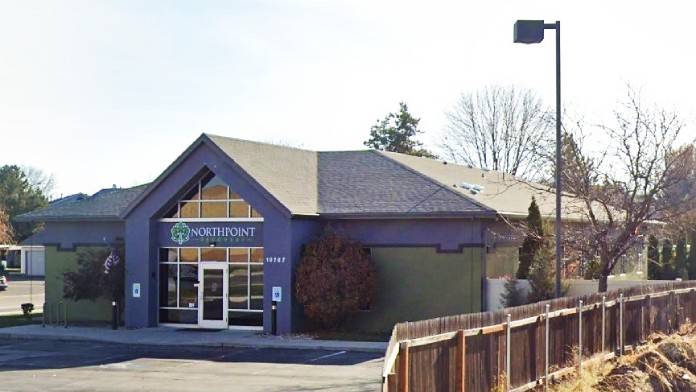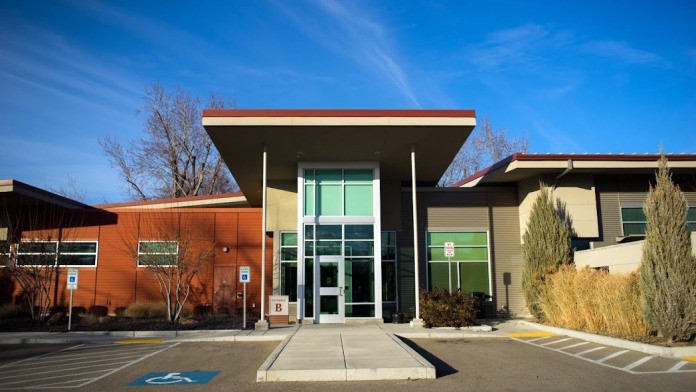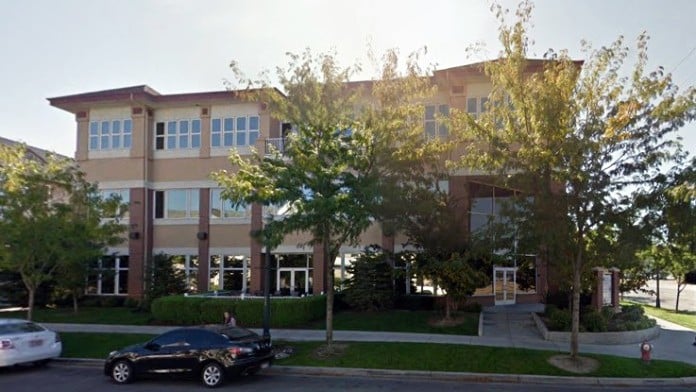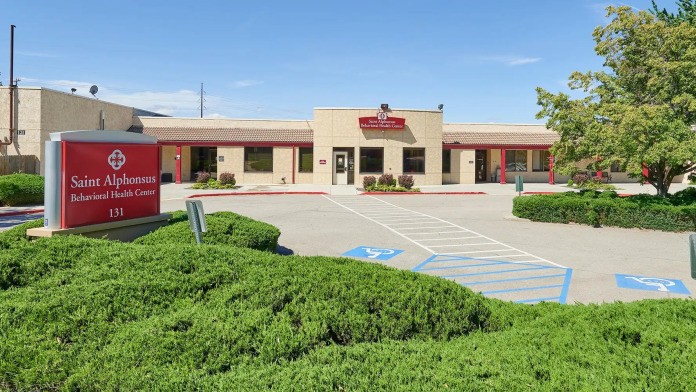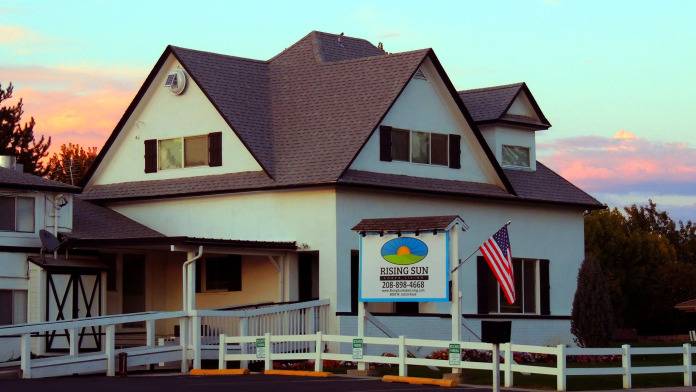Thanks to all the staff for how amazing they were with me! So kind and helpful. I would definitely recommend going to this office.
About Access Behavioral Health Services
Access Behavioral Health Services provides outpatient mental health and addiction recovery programs for youth and adults in Boise, Idaho. Treatment options include medically supervised ambulatory detox, intensive outpatient programs (IOP), general outpatient programs (OP), and aftercare programming. They also offer specialized services for children, adolescents, young adults, seniors, persons with hearing impairments, and persons with co-occurring addiction and mental illness.
Medically Supervised Ambulatory Detox
Clients undergoing ambulatory detox receive robust medical supervision and may be prescribed FDA-approved medications to ease withdrawal symptoms and prevent potentially serious complications.
Intensive Outpatient Program (IOP)
The intensive outpatient program (IOP) is designed for clients requiring high-level supervision and support, including those in early recovery, those stepping down from inpatient care, and those at an elevated risk of relapse. Medical and mental health assessments, personalized care planning, and comprehensive case management are included for all clients. Clients also engage in intensive individual, group, and family counseling that draws on proven modalities, including CBT and DBT. The program promotes clients’ sustained sobriety through age-specific, recovery-focused life-skills training that addresses topics such as coping, self-care, and relapse prevention.
General Outpatient (OP) and Aftercare Services
The general outpatient program (OP) and aftercare services ensure a complete continuum of care aligned with clients’ evolving needs. This treatment may include step-down support, vocational and academic training, housing and employment assistance, and referrals for medical, mental health, and social service programs.
Accreditation and Payment
Access Behavioral Health Services is licensed by the state of Idaho and accepts private insurance, military insurance, Medicare, Medicaid, sliding-scale payment schedules, and self-pay. Financial aid is available.
Latest Reviews
Rehab Score
Other Forms of Payment
Private insurance refers to any kind of healthcare coverage that isn't from the state or federal government. This includes individual and family plans offered by an employer or purchased from the Insurance Marketplace. Every plan will have different requirements and out of pocket costs so be sure to get the full details before you start treatment.
Self-pay involves paying for treatment out of your own pocket. You can use savings or credit, get a personal loan, or receive help from family and friends to fund your treatment. If you don't have insurance or your insurance plan doesn't cover a specific program, self-pay can help ensure you still get the care you need.
Financial aid can take many forms. Centers may have grants or scholarships available to clients who meet eligibility requirements. Programs that receive SAMHSA grants may have financial aid available for those who need treatment as well. Grants and scholarships can help you pai for treatment without having to repay.
Medicaid is a state based program that helps lower-income individuals and families pay for healthcare. Medicaid covers addiction treatment so those enrolled can use their coverage to pay for rehab. When a program accepts Medicaid the client often pays very little or nothing out of their own pocket.
Medicare is a federal program that provides health insurance for those 65 and older. It also serves people under 65 with chronic and disabling health challenges. To use Medicare for addiction treatment you need to find a program that accepts Medicare and is in network with your plan. Out of pocket costs and preauthorization requirements vary, so always check with your provider.
Military members, veterans, and eligible dependents have access to specific insurance programs that help them get the care they need. TRICARE and VA insurance can help you access low cost or no cost addiction and mental health treatment. Programs that accept military insurance often have targeted treatment focused on the unique challenges military members, veterans, and their families face.
Addiction Treatments
Levels of Care
Outpatient Programs (OP) are for those seeking mental rehab or drug rehab, but who also stay at home every night. The main difference between outpatient treatment (OP) and intensive outpatient treatment (IOP) lies in the amount of hours the patient spends at the facility. Most of the time an outpatient program is designed for someone who has completed an inpatient stay and is looking to continue their growth in recovery. Outpatient is not meant to be the starting point, it is commonly referred to as aftercare.
Clients requiring treatment in an inpatient rehab are often those who need stabilization support as they exit detox or contend with a life crisis. Residing at the treatment facility enables clients to focus exclusively on their recovery. They engage in extensive psychotherapy and recovery-focused life skills training to support their sustained sobriety and prepare them for outpatient and community-based care. Evidence-based holistic therapies, such as experiential therapy and meditation, are also commonly available.
Clients in an intensive outpatient program (IOP) are typically in early recovery or are at an elevated relapse risk. This includes those who are exiting detox or inpatient care, those in crisis, and those who have chosen IOP in lieu of hospitalization. Intensive outpatient treatment involves a minimum of nine and a maximum of 20 treatment hours weekly. Most rehabs offer a variety of services, including medication assisted treatment (MAT), addiction counseling, recovery-focused life skills training, and holistic therapies.
Medical detox is the process of removing addictive substances from your body in a medically supervised setting. With the aim of keeping you as safe and comfortable as possible, a team of licensed medical professionals monitors your vitals and may provide medications if needed to alleviate any withdrawal symptoms. Medically assisted detox is generally partially covered by most private insurance and insurance plans under the Affordable Care Act.
Treatments
Many of those suffering from addiction also suffer from mental or emotional illnesses like schizophrenia, bipolar disorder, depression, or anxiety disorders. Rehab and other substance abuse facilities treating those with a dual diagnosis or co-occurring disorder administer psychiatric treatment to address the person's mental health issue in addition to drug and alcohol rehabilitation.
Mental health rehabs focus on helping individuals recover from mental illnesses like bipolar disorder, clinical depression, anxiety disorders, schizophrenia, and more. Mental health professionals at these facilities are trained to understand and treat mental health issues, both in individual and group settings.
Programs
Adult rehab programs include therapies tailored to each client's specific needs, goals, and recovery progress. They are tailored to the specific challenges adult clients may face, including family and work pressures and commitments. From inpatient and residential treatment to various levels of outpatient services, there are many options available. Some facilities also help adults work through co-occurring conditions, like anxiety, that can accompany addiction.
Young adulthood can be an exciting, yet difficult, time of transition. Individuals in their late teens to mid-20s face unique stressors related to school, jobs, families, and social circles, which can lead to a rise in substance use. Rehab centers with dedicated young adult programs will include activities and amenities that cater to this age group, with an emphasis on specialized counseling, peer socialization, and ongoing aftercare.
Clinical Services
Cognitive Behavioral Therapy (CBT) is a therapy modality that focuses on the relationship between one's thoughts, feelings, and behaviors. It is used to establish and allow for healthy responses to thoughts and feelings (instead of unhealthy responses, like using drugs or alcohol). CBT has been proven effective for recovering addicts of all kinds, and is used to strengthen a patient's own self-awareness and ability to self-regulate. CBT allows individuals to monitor their own emotional state, become more adept at communicating with others, and manage stress without needing to engage in substance abuse.
Whether a marriage or other committed relationship, an intimate partnership is one of the most important aspects of a person's life. Drug and alcohol addiction affects both members of a couple in deep and meaningful ways, as does rehab and recovery. Couples therapy and other couples-focused treatment programs are significant parts of exploring triggers of addiction, as well as learning how to build healthy patterns to support ongoing sobriety.
Experiential therapy is a form of therapy in which clients are encouraged to surface and work through subconscious issues by engaging in real-time experiences. Experiential therapy departs from traditional talk therapy by involving the body, and having clients engage in activities, movements, and physical and emotional expression. This can involve role-play or using props (which can include other people). Experiential therapy can help people process trauma, memories, and emotion quickly, deeply, and in a lasting fashion, leading to substantial and impactful healing.
Research clearly demonstrates that recovery is far more successful and sustainable when loved ones like family members participate in rehab and substance abuse treatment. Genetic factors may be at play when it comes to drug and alcohol addiction, as well as mental health issues. Family dynamics often play a critical role in addiction triggers, and if properly educated, family members can be a strong source of support when it comes to rehabilitation.
Group therapy is any therapeutic work that happens in a group (not one-on-one). There are a number of different group therapy modalities, including support groups, experiential therapy, psycho-education, and more. Group therapy involves treatment as well as processing interaction between group members.
In individual therapy, a patient meets one-on-one with a trained psychologist or counselor. Therapy is a pivotal part of effective substance abuse treatment, as it often covers root causes of addiction, including challenges faced by the patient in their social, family, and work/school life.
Trauma therapy addresses traumatic incidents from a client's past that are likely affecting their present-day experience. Trauma is often one of the primary triggers and potential causes of addiction, and can stem from child sexual abuse, domestic violence, having a parent with a mental illness, losing one or both parents at a young age, teenage or adult sexual assault, or any number of other factors. The purpose of trauma therapy is to allow a patient to process trauma and move through and past it, with the help of trained and compassionate mental health professionals.
Amenities
-
Residential Setting
Staff

Laura Scuri
Owner/Community Based Services, Peer Supports, Case Management, Substance Abuse Treatment, Payee Services, Residential Habilitation Administrator

Rebecca Heihn
Director of Respite Care for Youth with SED

Randal Hallenberger
Director of Community Based Rehabilitation Services/Case Management Services
Contact Information
3307 Caldwell Boulevard
Suites 103-104
Nampa, ID 83651


